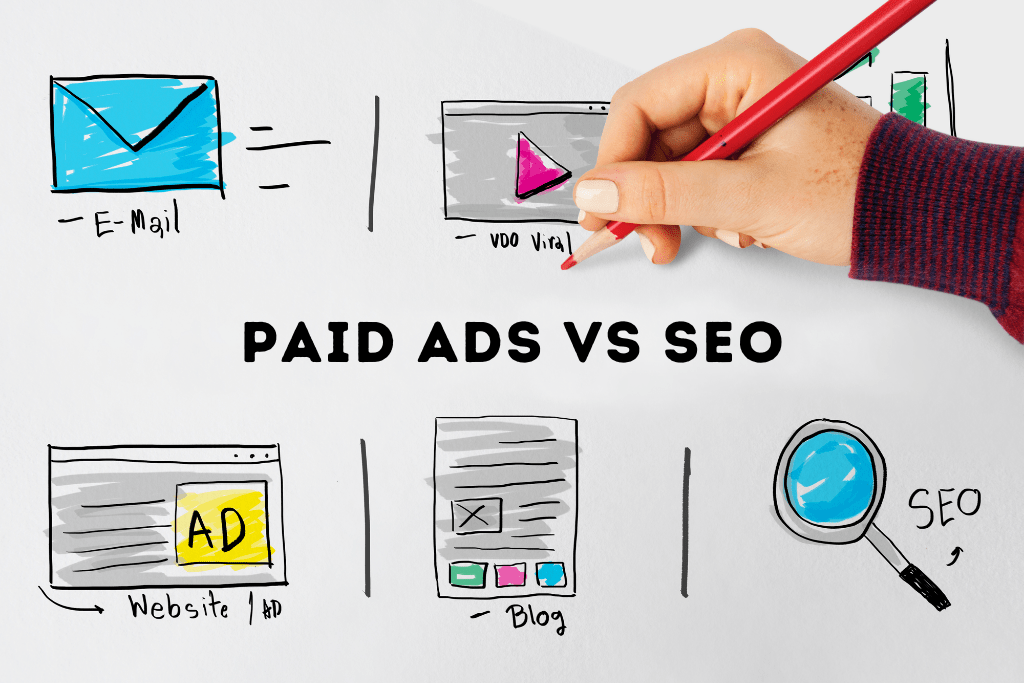Paid Ads versus SEO: What should I focus on?

It is well known that online marketing increases awareness and sales. But when it comes to whether the marketing budget should be invested in Paid Ads or SEO, opinions may vary.
The answer is quite simple: Paid Ads lead to quick success; however, the business endures costs with every click, and the visibility ends once the campaign is finished. SEO, on the other hand, is more sustainable and leads to long-term success but takes more time to implement. With a well-tuned combination, you get the best of both marketing strategies.
Paid Ads can be implemented both on social media as well as on Google. While they both run on the pay-per-click (PPC) model, they target users at different stages in the buyer’s journey. For example, Google Ads helps you find new customers, while Facebook helps new customers find you.
You can read more about the differences between the two channels here.
Paid Ads benefits
A well-defined paid campaign creates immediate attention, new visitors, more traffic, and thus more sales or other desired conversions that are defined as the campaign’s success (e.g. leads)
Budget control, target audience analysis, and, if necessary, creative adjustments are all possible at any stage while the campaign is running. It can also stop immediately when the desired success has occurred.
The maximum cost of paid ads depends on the popularity of the keywords and the bidding process (if the campaign runs on Google), and on the current competition (if the campaign runs on Facebook / Instagram).
However, it’s not always the highest bidder/budget who takes the first place in the search results or gains more impressions on social media, as factors such as the relevance of the advertised page or the quality of the ads’ creative and copywriting are also taken into account.
SEO benefits
SEO ensures a desirable ranking within the organic search results. In addition, it is much more sustainable and requires no costs for search engines.
As fewer and fewer searchers click on the ads while researching which product to purchase, they are more likely to click on the organic search results. Therefore, the organic search results appear just below the paid ads and do not include the “Ad” badge.
SEO, however, requires much more effort and time since it is not implemented with one click and configuration. In order to ensure the long-term success of a website or webshop with SEO, detailed on-page and off-page optimization is necessary.
On-page optimization includes creating unique content while ensuring the usability of the website to affect Google ranking. Search engines also evaluate the bounce rate and length of stay on the page. Off-page optimization in SEO is focused on high-quality backlinks. It is not the number of backlinks that counts, but their quality. Links from reputable sites ensure that the search engines view the website as trustworthy.
What should I focus on?
In the online marketing mix, a combination of paid ads and SEO is often the most effective. On the one hand, SEO-optimized pages perform better in paid campaigns as they have already been optimized for the user.
In addition, essential pages that do not yet have organic rankings only have the chance to be found via the search engine through paid methods.
However, if a page can be found organically among the first results, paid ads can be reduced, and you can save on the cost of generating clicks. Thus, the website traffic is cheaper.